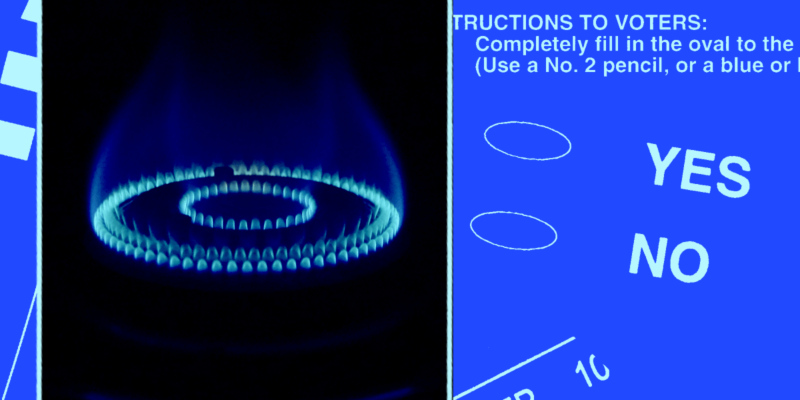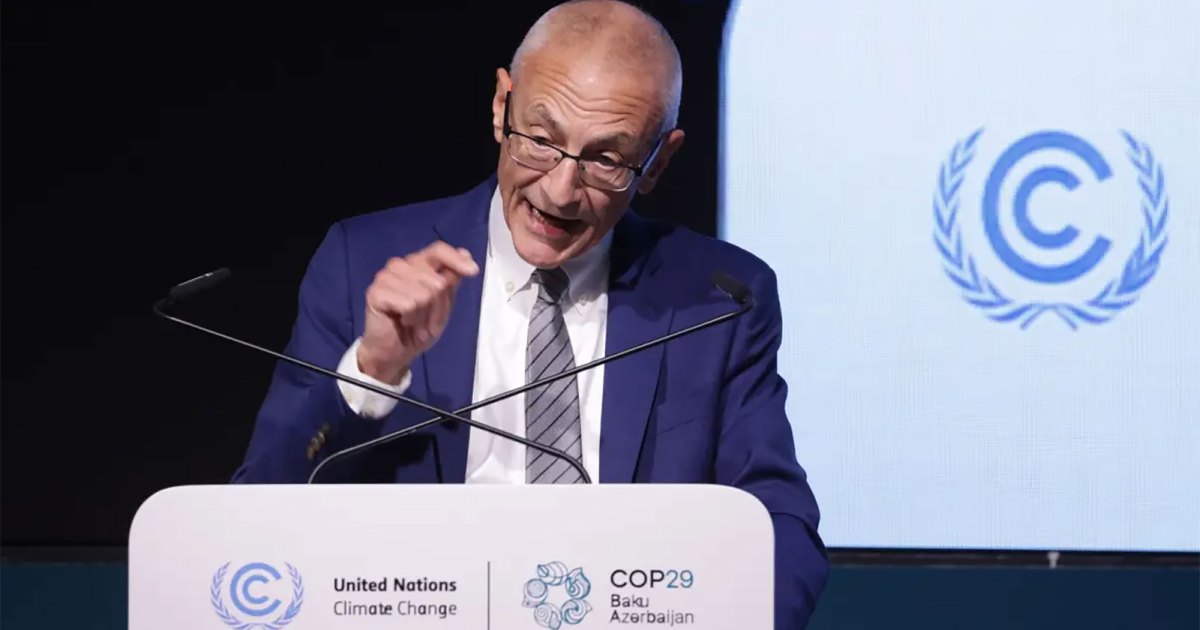
In the last five years, as the movement to ditch gas-fueled stoves and heaters has spread across the country—it’s also ignited a backlash.
In 2019, Berkeley, California, became the first American city to ban gas hookups in new buildings, a rule intended to reduce carbon emissions—and improve indoor air quality in light of growing evidence that gas stoves emit pollutants linked to asthma and cancer. Dozens more cities followed suit.
The California Restaurant Association sued Berkeley, and the city eventually backed down and repealed its policy. Places with similar laws, including New York state and Washington, DC, were slapped with lawsuits too. Conservatives at the highest levels of government warned the public, misleadingly, that liberals were coming for people’s gas stoves. About half of US states, mostly but not all red, have since passed laws preemptively barring local governments from regulating gas.
This slice of the culture wars is now on the ballot in Washington, one of the country’s most climate-forward states. I-2066, a measure funded by fossil fuel and construction groups to “protect energy choice,” wouldn’t merely prevent local governments from banning “natural” gas in new buildings—with its broad language, climate advocates say, the measure might also be used to block state incentives encouraging people to switch to energy-efficient electric appliances. If it passes, they worry, it could provide a blueprint for the fossil fuel industry to oppose similar policies nationwide.
“This is a national threat,” says Leah Missik, a researcher and policy developer at Climate Solutions, a Washington State environmental group opposing the initiative. “Washington is somewhat of a testing pool for them to see if they can go further in weaponizing the initiative process to threaten climate progress.”
So how did Washington—the state that gave us REI, modern backpacks, and the “greenest governor” in America—come to consider a measure to preserve gas appliances?
I-2066 “would undo clean energy efforts in Washington state,” says one advocate, “which will make new homes dependent on polluting fossil fuels for decades to come.”
Experts told me I-2066 is largely a response to two progressive climate policies. First, there was a tweak to Washington’s building codes: About a quarter of the state’s carbon emissions come from heating and powering buildings. Last year, the State Building Code Council voted to require new buildings to meet certain energy efficiency standards, a policy that favored electric appliances like heat pumps over more wasteful, gas-powered ones. (Seattle went further, passing a policy requiring many large, existing buildings to reach net zero emissions by 2050.)
Then, earlier this year, the Democrat-controlled state legislature passed a wonky, but impactful green energy law, House Bill 1589, which requires Washington’s largest utility, Puget Sound Energy, to outline a plan for full electrification.
When that passed, the Building Industry Association of Washington, a major funder of I-2066, released a statement claiming the law “clears the path” for Puget Sound Energy to “force its 800,000 natural gas customers to convert their homes to all-electric,” at a cost of “$40,000 to $50,000 per household.”
According to Puget Sound Energy, the bill doesn’t “force” electrification—it is, primarily, a law to help the utility plan to go electric. Plus, climate advocates say, the switch to all-electric buildings is inevitable, given the climate and health dangers of gas. And helping utility companies prepare, they argue, will reduce costs for customers in the long run.
We can do the energy transition “in a chaotic and unmanaged way, or we can do it in a fair and managed way,” says Jan Hasselman, a Seattle-based senior attorney at Earthjustice, an organization that opposes I-2066. HB 1589 aimed to help ease the state into the transition, he says, but “this initiative is a chaos bomb thrown into the middle of that process that will make energy more expensive and the future more complicated.”
The notion that Washington was shoving clean energy down people’s throats gained traction nonetheless. Let’s Go Washington, a group run by hedge fund manager Brian Heywood, and backed by the National Association of Home Builders and Koch Industries, which is heavily invested in fossil fuels, took up a signature drive and successfully got I-2066 on the ballot, along with three other measures. One of the others, I-2117, would roll back Washington’s cap-and-invest program, which has raised about $2 billion for state green energy programs, but also, critics say, pushed up the price of gasoline. (Heywood was unavailable for an interview with Mother Jones, and the Building Industry Association of Washington did not respond to an interview request.)
“It’s the perception that is important,” explains Aseem Prakash, a political science professor at the University of Washington. “And the perception is that these climate laws are imposing new costs that people are not willing to undertake.”
If passed—and polling suggests its odds are good—I-2066 would repeal key parts of HB 1589 and, as Axios reports, require the state to revise the new building codes next year to no longer disadvantage gas. To supporters, that would mean preserving consumers’ “energy choice.” To opponents, it’d be a major setback to the state’s ability to address the climate crisis.
I-2066 “would undo clean energy efforts in Washington state,” says Patience Malaba, executive director of the Housing Development Consortium, an affordable housing advocacy group, “which will make new homes dependent on polluting fossil fuels for decades to come.”
More broadly, the measure’s passage would serve as a symbolic rebuke to progressive electrification policies. “We had a lot of success,” Hasselman says. “We moved the ball forward quite a bit, and now we’re seeing a real pushback.”
“I do worry,” he adds, “if the billionaires and the fossil fuel companies pour enough money into these initiatives to be successful, it sends a terribly chilling message for the whole nation.”















